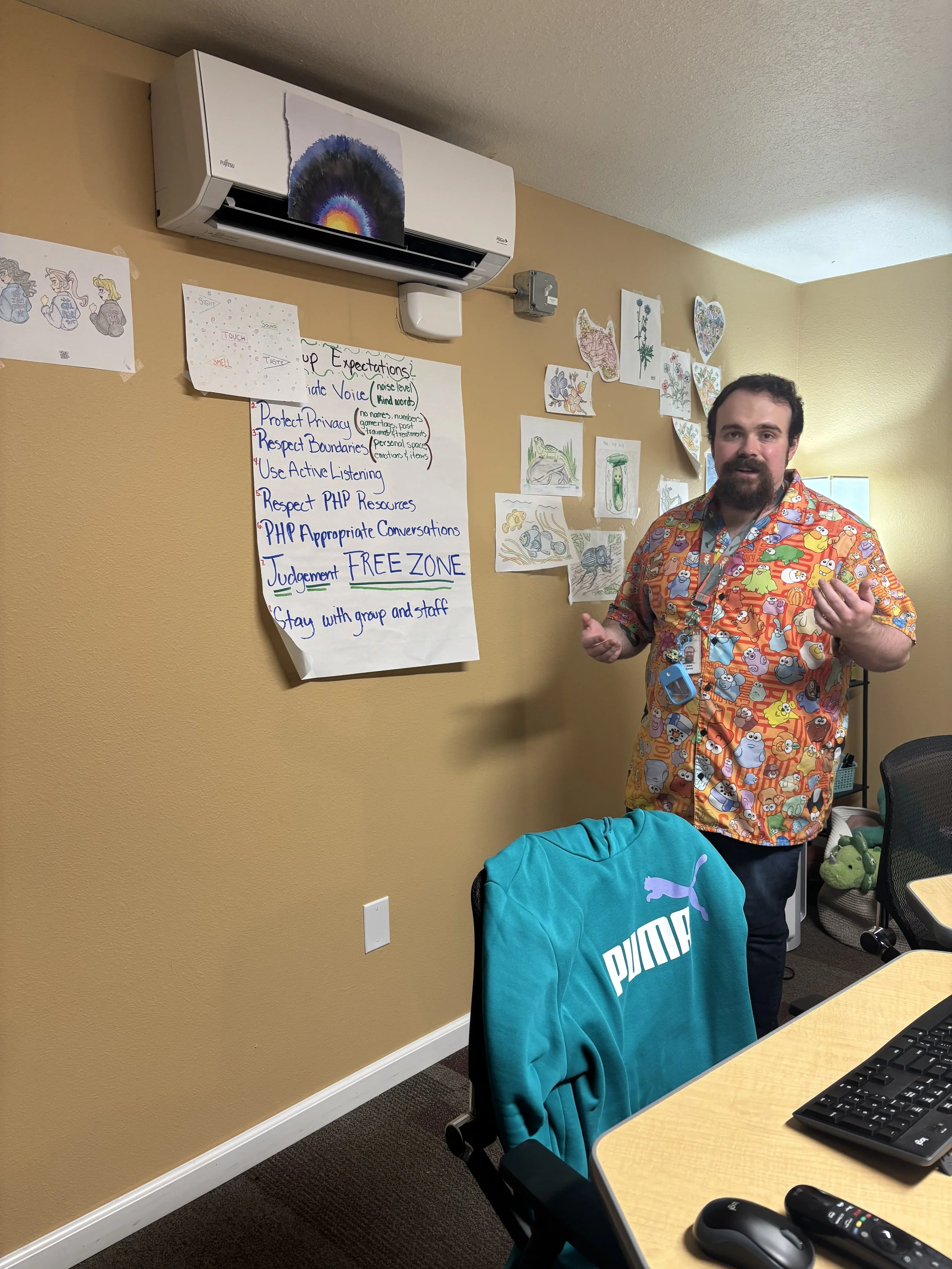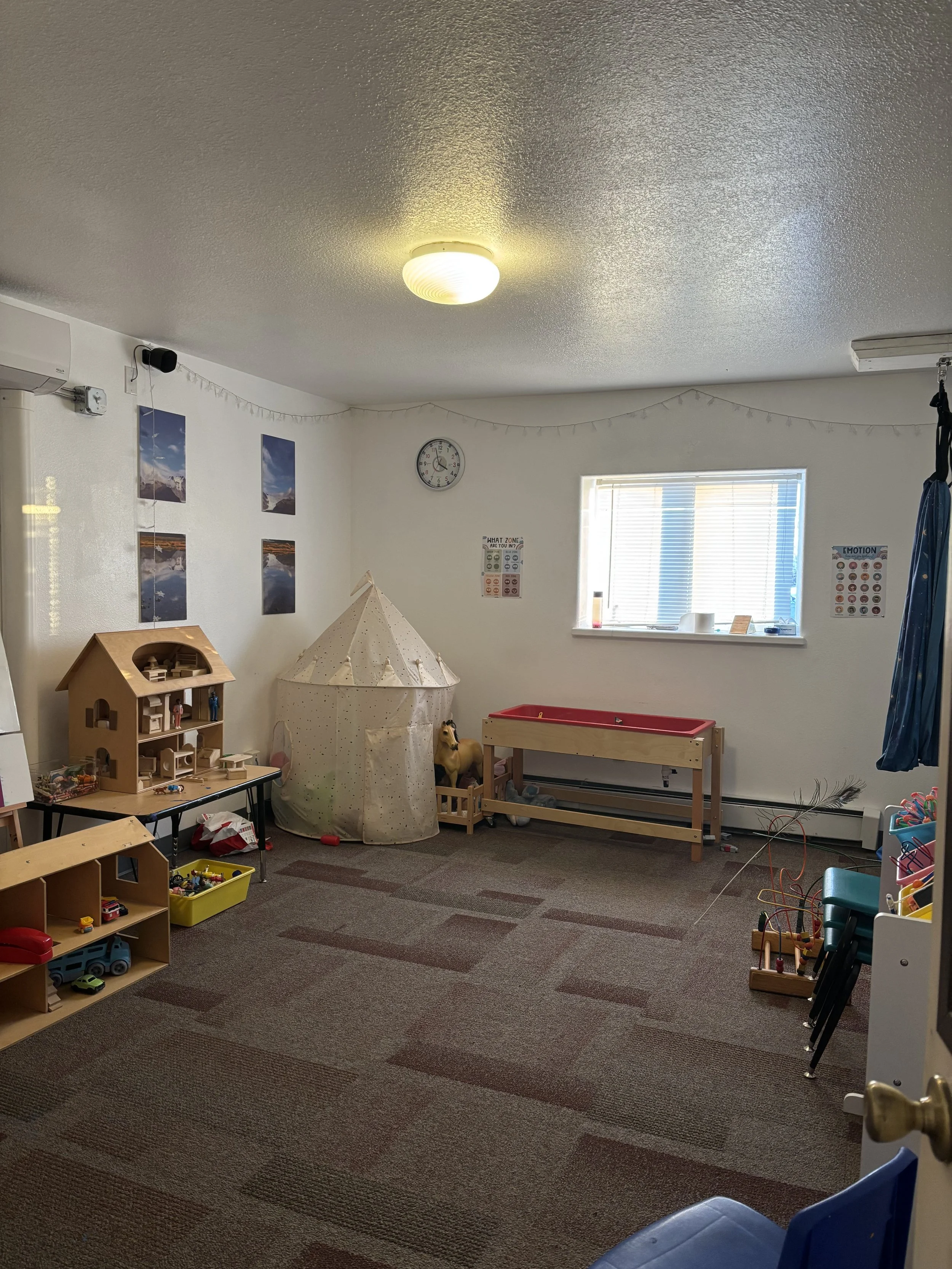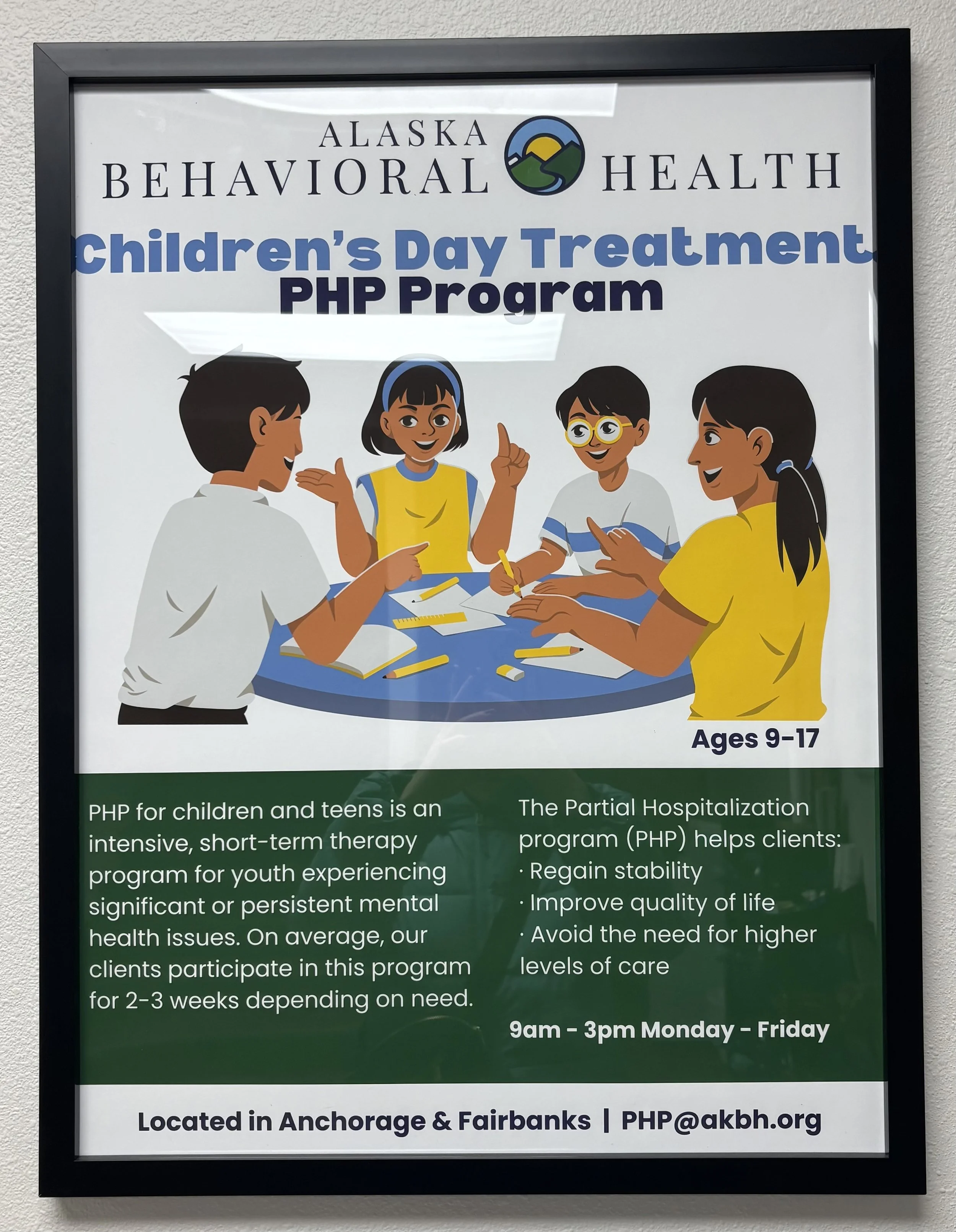Local clinic offers help battling seasonal affective disorder for youth
Story and photos by Katie Everett
Jesse Barrett explains the room rules, and emphasizes judgement free zone.
With the arrival of winter, Alaska will see a significant decrease in daylight and temperatures. This increase in darkness can take a toll on the mental health of Alaskan residents. While life-long Alaskans may be accustomed to the lack of daylight, many still struggle with mental health during the long, dark days of winter.
The Alaska Behavioral Health Clinic has locations in Fairbanks and Anchorage, but it is their Fairbanks clinic that is helping to combat the seasonal mental health crisis.
The Sun Star interviewed Jesse Barrett, the senior licensed clinician at the Alaska Behavioral Health Child and Family Clinic. Just over a year ago, the clinic started the partial hospitalization program, or PHP.
“The goal of the program is to offer kind of short-term stabilization to try to prevent hospitalization or need for an out-of-home placement, like residential care or something of that nature,” said Barrett.
Barrett explained that the PHP is meant for children and teenagers, and provides support for all kinds of mental health struggles, including anxiety, depression, ADHD, and seasonal affective disorder, or SAD. The PHP was started with the goal of providing high levels of care in a relatively short amount of time.
A playroom in the Child and Family Clinic.
The program can reach kids in about 24 hours and can see up to 10 kids at a time. Patients in the program go through about two to three weeks of care, which includes regular access to medical care, skill building, and therapy sessions.
Therapy sessions are done individually, with family, and in a group setting. The program is run daily from 9 a.m. to 3 p.m., and education about healthy coping mechanisms is provided to kids.
Kids ages nine to 17 are seen through the PHP, and that the outpatient clinic serves anyone from ages three to 23.
Barrett explained that the season change affects levels of socialization as well as vitamin D and melatonin levels. The darkness triggers the body to release melatonin, which in turn causes sleepiness, and it can be hard to stay energized when the sleep cycle is messed up. This increase in tiredness also depresses mood, and causes the brain to be more susceptible to negative thought pathways.
When a child enters the PHP, they are placed in group therapy sessions based on their age group, and they also receive individual and family therapy. Providers at the clinic work to place the child with the appropriate provider based on the child’s needs.
Steven A. Cohen clinic provides support for military members and their families.
The clinic also offers dialectical and cognitive behavioral therapy, and a few providers are even trained in eye movement desensitization and reprocessing, EMDR, therapy.
To assist parents or caregivers, the clinic continues to provide therapy even after a child is done with the program, and they will often sit down with caregivers to discuss how they can help their child moving forward.
Barrett emphasized the broad range of services that the clinic offers, including military counseling and a place for patients to attend telehealth appointments if they do not have reliable internet access.
“For the majority of people that are going to be seeking help, we probably have something that we can offer you,” said Barrett.
Barrett explained that the goal of the clinic was to be accessible to everyone, so they take almost any insurance and can even implement payment plans, because the clinic never wants to deny care to anyone.
The PHP building has a very cozy, welcoming atmosphere and has several rooms for kids to play and participate in their hobbies. The group therapy room is incredibly welcoming, with artwork covering the walls and a poster with rules on the wall that emphasized a judgement free zone. The clinic is open to anyone, and wants to make sure that kids with different sexual orientations or gender identities are included and feel safe.
A poster explaining the partial hospitalization program.
“I want to convey a lot of hope,” Barrett said about the long road of working through mental health struggles.
He stated that everyone can and most likely will struggle with mental health, and he has made sure that everyone seen by him understands that there is hope, and that they need to trust the process because it will be better on the other side.
The Alaska Behavioral Health Child and Family Clinic in Fairbanks has many resources for people of all ages struggling with mental health, and their partial hospitalization program has proven to be incredibly beneficial to the children who participate. The program is making progress in combating the mental health crisis the world is experiencing, and it is clear that everyone there wants to help as much as they possibly can.
For access to outpatient and PHP services call 907-371-1300
Alaska Behavioral Health is always hiring and taking interns, and UAF students are welcome to apply.





